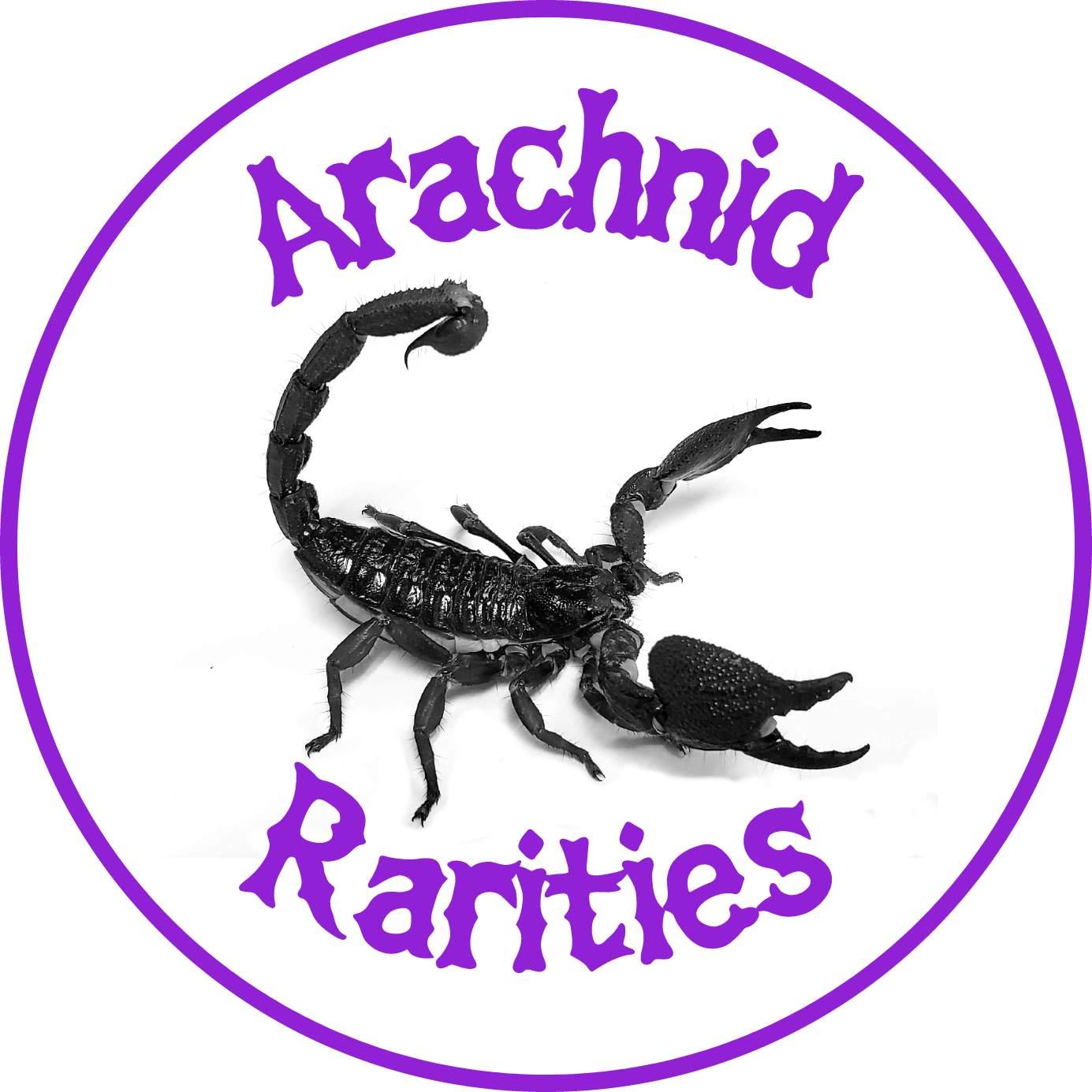Centruroides nitidus (Dominican Bark Scorpion)
A beautiful bark scorpion species with nice contrasting golden and red pattern
Geographical Distribution: Dominican Republic
Size: Larger 3”-4” (7.5cm-10cm)
Habitat: Humid - Solitary Housing when young, Group Housing when mature (Note: cannibalism may still occur, many cases of females cannibalizing males in group housing)
Substrate: Peat/Coco fiber/Vermiculite (75/15/10 ratio) with vertical cork bark. Reptisoil works well too, can provide sphagnum moss to help maintain humidity. Substrate should stay moist (clump together) but not wet (squeeze water out).
Temperatures: 77F- 85F (25C-30C)
Water requirements: Ensure substrate stays moist by spraying the substrate with water as needed (Note, misting substrate is not sufficient, you must make sure the substrate is soaking up the water)
© Joel Sartore/National Geographic Photo Ark
A beautiful bark scorpion species with nice contrasting golden and red pattern
Geographical Distribution: Dominican Republic
Size: Larger 3”-4” (7.5cm-10cm)
Habitat: Humid - Solitary Housing when young, Group Housing when mature (Note: cannibalism may still occur, many cases of females cannibalizing males in group housing)
Substrate: Peat/Coco fiber/Vermiculite (75/15/10 ratio) with vertical cork bark. Reptisoil works well too, can provide sphagnum moss to help maintain humidity. Substrate should stay moist (clump together) but not wet (squeeze water out).
Temperatures: 77F- 85F (25C-30C)
Water requirements: Ensure substrate stays moist by spraying the substrate with water as needed (Note, misting substrate is not sufficient, you must make sure the substrate is soaking up the water)
© Joel Sartore/National Geographic Photo Ark
A beautiful bark scorpion species with nice contrasting golden and red pattern
Geographical Distribution: Dominican Republic
Size: Larger 3”-4” (7.5cm-10cm)
Habitat: Humid - Solitary Housing when young, Group Housing when mature (Note: cannibalism may still occur, many cases of females cannibalizing males in group housing)
Substrate: Peat/Coco fiber/Vermiculite (75/15/10 ratio) with vertical cork bark. Reptisoil works well too, can provide sphagnum moss to help maintain humidity. Substrate should stay moist (clump together) but not wet (squeeze water out).
Temperatures: 77F- 85F (25C-30C)
Water requirements: Ensure substrate stays moist by spraying the substrate with water as needed (Note, misting substrate is not sufficient, you must make sure the substrate is soaking up the water)
© Joel Sartore/National Geographic Photo Ark


